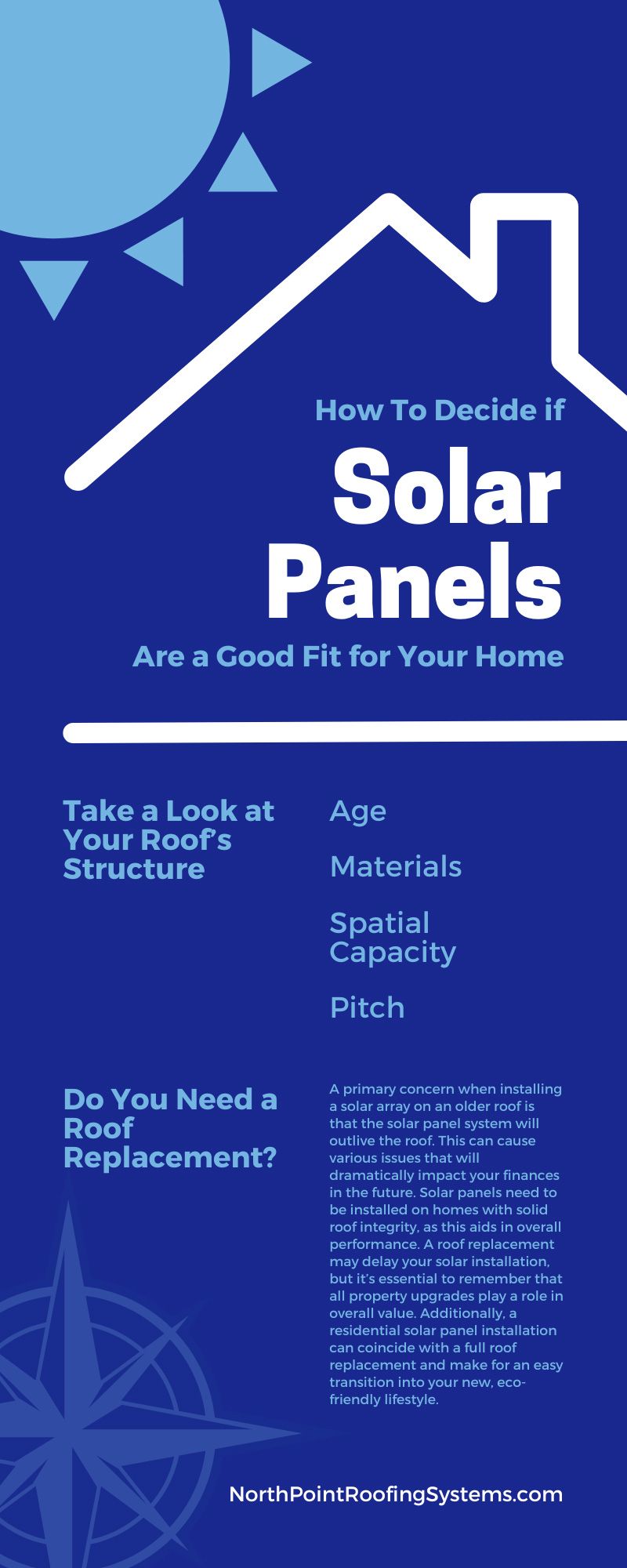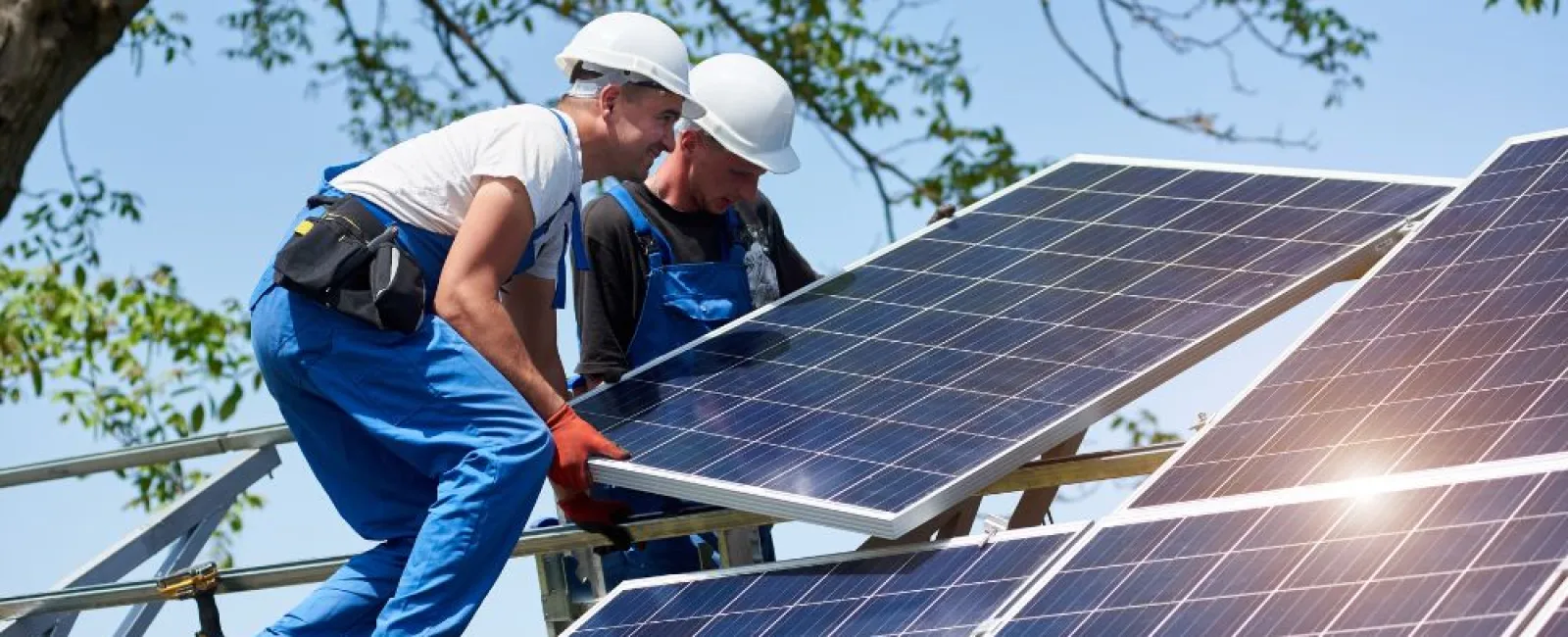Many people are turning to green solutions for their everyday needs and lifestyle preferences. One solution that is growing at lightspeed is the use of solar panels on residential homes but are solar panels worth it?
Determining if solar energy is a good fit for your home is like working on a puzzle. Many pieces are involved in the process, but with the right team, you can finish the project. Here, we explore the different pieces that will help you decide if solar panel installation is right for you.
Take a Look at Your Roof's Structure
Installing solar panels on a roof is one of the most efficient options for residential purposes. But not every roof is structurally sound enough for solar installation. A few key factors will help you determine if your roof's structure is ready for the job or if you will need to consider replacing your roof before the installation can occur.
Roof Age
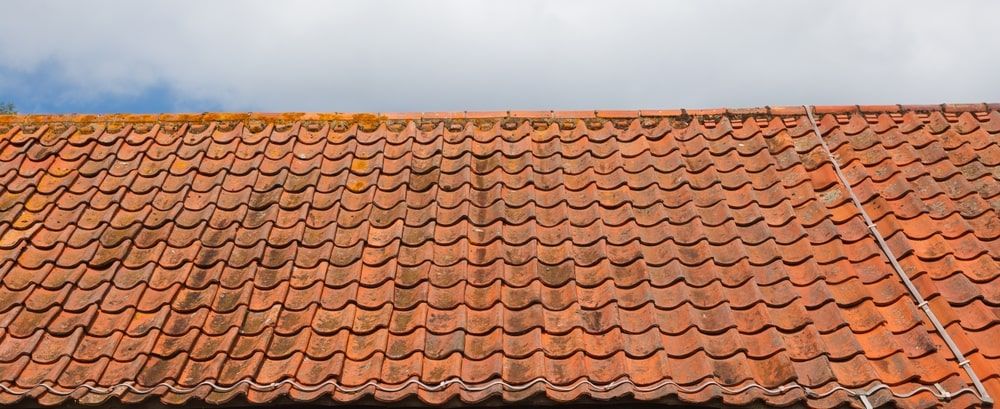
You need to consider the age of your roof before you make any further decisions. Solar systems last two to three decades, depending on integrity and climate. So, if you install a new system on an older roof, you may find the roof's performance will not withstand the life of the solar panels. If your roof was installed within the last three to five years, you might be in a great position to move forward with the solar array. Otherwise, it's worth considering a replacement.
Roof Material
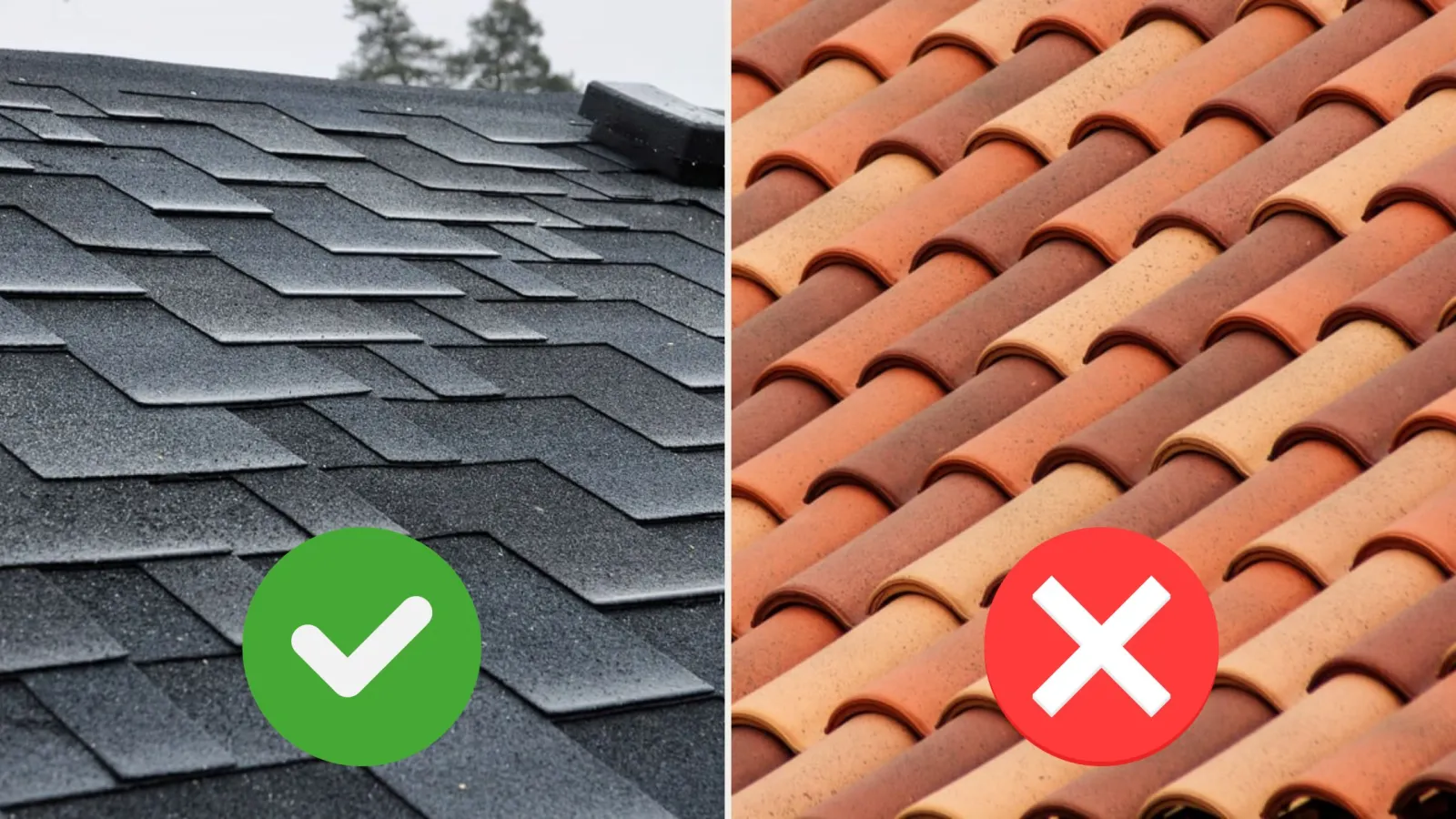
Your roof's materials also play a role in determining whether solar panels are a viable option. There are a handful of common roof materials that perform well in terms of roofing integrity.
But when you add solar panels to the mix, materials like wood or clay begin to fall short, as they are more delicate and don't respond well to these types of installations.
It's best to have a professional roofing team inspect the materials and integrity of your roof and make notable suggestions before performing a solar installation.
Spatial Capacity
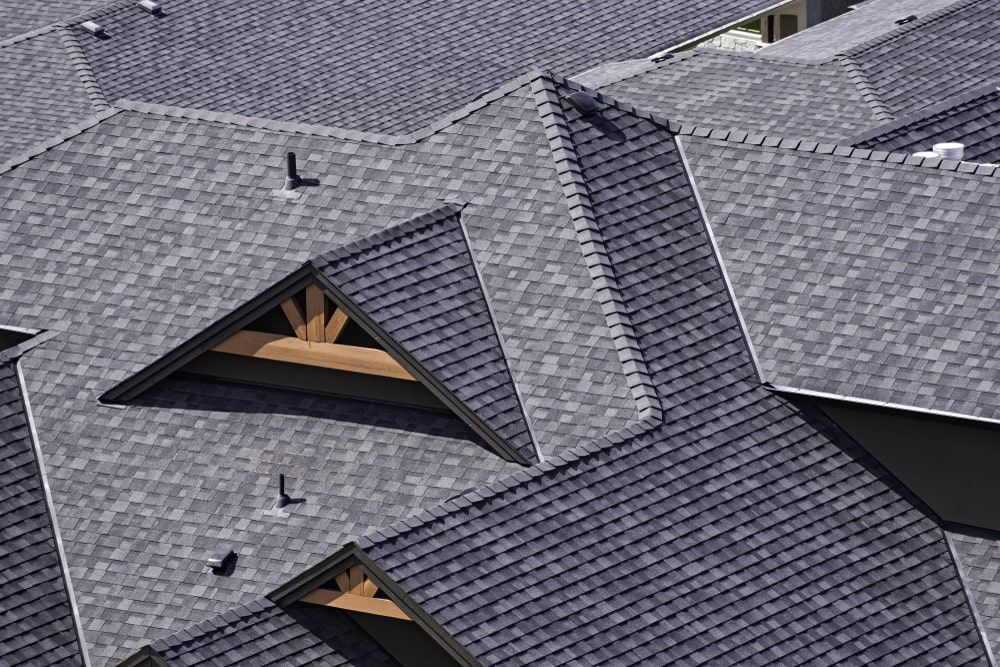
Stepping outside and taking a glance at your roof will help you determine the spatial capacity for an array. While large, spacious roofs are the most suitable solution for installing a high number of panels, you can still install an array on a smaller roof.
The amount of spatial capacity on your roof will help you determine how many panels you will be able to install and the power of panels you should invest in. For example, a small roof with vents, dormers, and skylights would benefit from a few smaller, high-efficiency panels that will achieve the same amount of pull as a large panel array on a spacious roof.
Roof Pitch
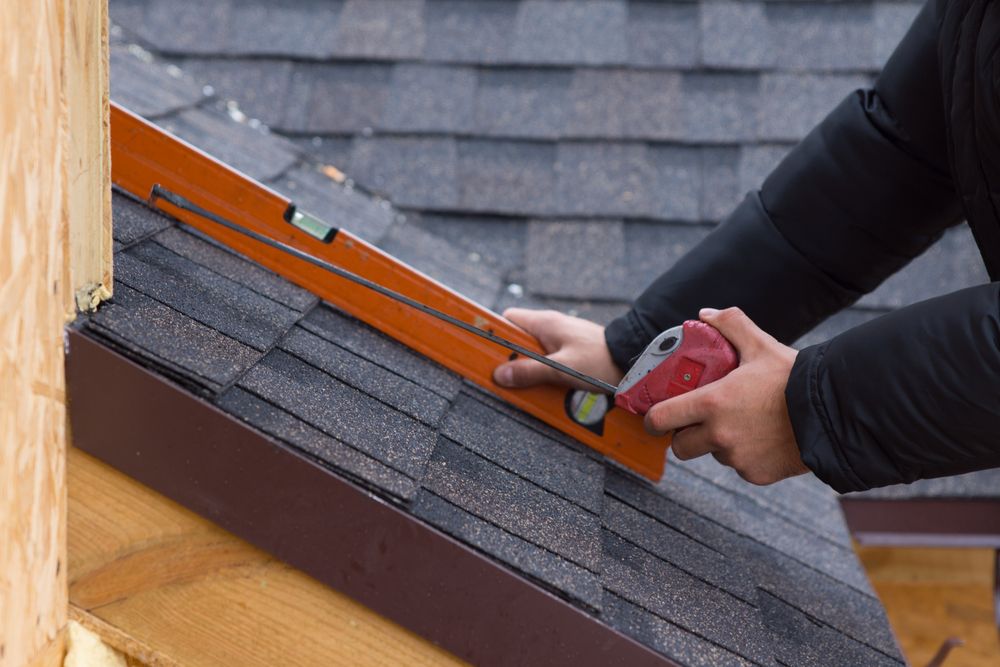
A roof pitch that is excessively steep can make the installation of solar panels more challenging and the system will typically not be able to produce enough electricity to function optimally.
Even flat roofs can present challenges as they might require additional solar panel mounting systems to ensure they are angled properly for optimal sun exposure. In addition, flat roofs may present drainage issues which can be inconvenient for solar panels.
For optimal solar panel performance and ease of installation, a roof pitch between 30 to 45 degrees is considered ideal. If you are not sure what your roof pitch is, you can easily use a level and tape measure or hire a professional to complete an inspection of the roof and property.
Do You Need a Roof Replacement?
A primary concern when installing solar panels on an older roof is that the solar system will outlive the roof. This can cause various issues that will dramatically impact your finances in the future.
Solar panels need to be installed on homes with solid roof integrity, as this aids in overall performance. A roof replacement may delay your solar panel installation, but it's essential to remember that all property upgrades play a role in overall value. Additionally, a residential solar shingles installation can coincide with a full roof replacement and make for an easy transition into your new, eco-friendly lifestyle.
Determine How Much You Pay for Energy
One of the easiest ways to begin exploring if solar panels are a good fit for your home is by determining how much you pay for energy. Typically, this value brings homeowners to a clear decision when they add up their monthly expenses and weigh that number against a solar investment. A long-term objective with solar installation is to see a return on investment and eventually pay next to nothing for energy. If you're paying $75 or more for energy, it's worthwhile to explore the benefits of solar because that is the threshold value for most arrangements. Once you pay off your array, you can begin selling your unused energy back to the grid and see great return potential.
Figure Out Your Overall Sunlight Exposure
It can be both difficult and simple to determine your home's overall sunlight exposure. You may know how much sunlight your home gets at various times, but only a professional will be able to assess overall orientation, tree canopies, and roof pitch as it pertains to sun exposure. These factors change throughout the day and may hinder the solar array's ability to receive the necessary sunlight to support your family's energy demands.
Consider Your Home's Climate
Your home's average climate will paint a clear picture of how well a solar array will perform. Solar arrays will perform differently in various climates. Knowing the average climate your home experiences can help bring you closer to finding the correct type and number of panels you need to support your energy demands.
Read also: What is the best time to install solar panels
Owning vs. Renting Makes a Difference
If you rent your home, you might think of all the cost savings you could benefit from if you installed solar panels on the roof. But being a renter makes the installation process more difficult because you need the approval of the property owner in order to conduct significant home changes.
On the other hand, if you own a property and rent it out, you will find that the benefits of having a solar panel array can increase the property's value. Should you decide to move forward with a solar installation while having renters, ensure you partner with the tenants to discuss the process and how things will change moving forward.
Northpoint Roofing Systems specializes in helping homeowners understand the possibilities of solar energy for their homes. Our team uses advanced technology to assess the integrity of roofing structures and pairs you with the most reliable solar solutions for your family. Partner with us today to learn more!
